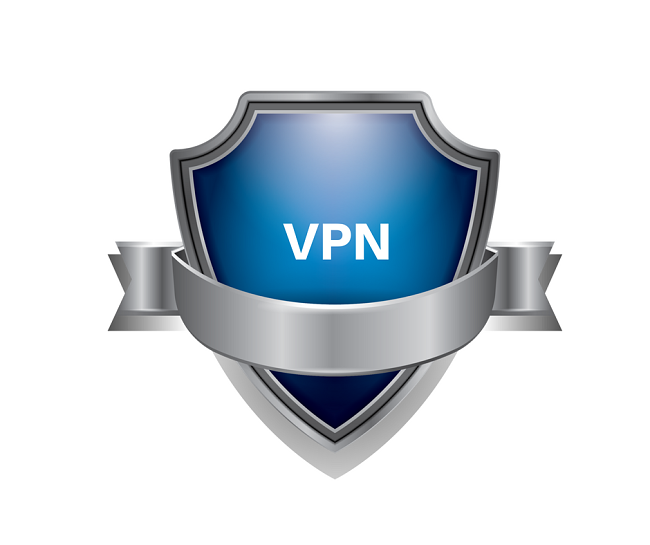Are Public Wifi Networks Secure? Here’s 5 Tips to Keep You Safe
Whenever you join a public Wifi network, you make yourself a target, and you are at risk.
According to the 2017 Norton Cyber Security Insights Report, more than 978 million people – 44% of all consumers were affected by cybercrime during 2017. 70% of consumers believe safeguards while using public Wifi networks are paramount. However, 66% revealed they continue to use free networks without employing proper security.
For better online security, it’s essential to understand why connecting to shared public networks so dangerous. Then, you can learn how you can protect yourself against attacks. Editor’s Note: We value our relationship with our readers, and we strive to earn your trust through transparency and integrity. We are in the same ownership group as some of the industry-leading products reviewed on this site: ExpressVPN, Cyberghost, Private Internet Access, and Intego. However, this does not affect our review process, as we adhere to a strict testing methodology.
5 Tips On Staying Safe While Using Public Wifi Networks
1. Utilize A VPN
There are only two guaranteed methods you can utilize when it comes to public Wifi networks.

- Don’t ever connect to a public Wifi network.
- Always use a VPN to hide your online activities and encrypt data.
Although abstaining from using public Wifi networks is achievable, it isn’t exactly practical. Many people rely on the freely available internet connections to work these days. Also, using wifi ensures people don’t exceed data limits, which can be expensive.
Alternatively, by incorporating a VPN, you can use public network connections whenever you please without worrying that hackers, cybercriminals, government agencies, or ISPs are gaining access to your confidential data.
When using a VPN, you’re able to establish a private and secure tunnel between your devices and the internet, hiding your online traffic from any prying eyes. While a VPN won’t prevent third-parties from knowing that information is being sent, it does prevent anyone from intercepting the link and obtaining your data.
Choosing the right VPN for the job is vital, as some services don’t provide the same levels of encryption and protection that you need to stay safe from any online attack. Ideally, a service needs robust security features and strong levels of encryption.
Providers that offer features like automatic kill switches DNS/IP leak protection, no logs policies, and money-back guarantees are also useful.
Start with premium VPN services like NordVPN, ExpressVPN, or SurfShark as they all have proven to put user protection first.
Editor’s Note: Transparency is one of our core values at WizCase, so you should know we are in the same ownership group as ExpressVPN. However, this does not affect our review process, as we adhere to a strict testing methodology.
2. Know Who To Trust
When it comes to using public Wifi networks, people who are unaware of the issues are more likely to fall victim to cybercrime. Ensure that you are on the lookout for any suspicious public Wifi duplicates and talk to staff at the stores and public spaces you use. Double check the name and password of their authorized network.
You can also reduce the risk by only connecting to the networks of well-known establishments like Starbucks, etc. There is a much lower chance of any malignant figures who are looking to steal your information.
Never trust a random network that shows up while you’re in public. No matter how desperate you are to connect to the internet, the largest percentage of attacks occur when users connect to strange networks.
3. Stick To HTTPS
HTTPS offers excellent levels of encryption, so it’s essential to use them when visiting any sites containing personal information.
You can activate the “Always Use HTTPS” settings on any of your frequently used websites that require credentials. This way, you won’t visit any unprotected sites accidentally or unknowingly pass on your sensitive information.
These days, some browsers like Google Chrome will inform you when you’re visiting an unprotected HTTP site instead of the safer HTTPS counterpart. Don’t ignore warnings and steer clear from any unsafe websites.
>4. Don’t Reveal Your Personal Information
You must be wary of any networks that require you to enter personal information, including email addresses, or request you to log in via social media accounts.
If you need to connect to one of these networks for any reason, try to use an alternative email and false information when possible to keep yourself protected. You can also stay safe by avoiding signing up for multiple services and, if possible, stick to the providers to which you’ve previously registered.
5. Turn Off File Sharing and Airdrop
It’s important to disable any features on your devices that allow easy and uncomplicated file sharing. By doing this, you’ll stop hackers and cybercriminals from sending you any unwanted files or grabbing yours, and it’s a vital step in protecting your data.
For PC:
- Go to Network and Sharing
- Change advanced sharing settings
- Turn off file and printer sharing
For Mac:
- Go to System Preferences followed by Sharing
- Unselect everything
- Head to Finder, click on AirDrop
- Select “Allow Me To Be Discovered By: No One”
On iOS devices, you need to switch off AirDrop in the Control Centre.
Top 5 VPNs To Stay Secure With Public Wifi
Editor's Note: We value our relationship with our readers, and we strive to earn your trust through transparency and integrity. We are in the same ownership group as some of the industry-leading products reviewed on this site: ExpressVPN, Cyberghost, Private Internet Access, and Intego. However, this does not affect our review process, as we adhere to a strict testing methodology.
How Do Public Wifi Networks Work?
Public Wifi networks have grown in popularity as businesses realized its value to customers. Initially, any establishments offering free Wifi saw an increase in profit. People are more likely to stay longer and purchase another coffee or bite to eat where there’s free Wifi, and it’s now an industry standard.

However, while it sounds like a win-win situation for both consumers and businesses, it’s important to remember that everything tends to come at a price.
It’s common for these public Wifi networks to be designed to be easily accessible for guests and don’t always require a password. Unfortunately, this also means they can be exploited more easily.
Even networks with passwords aren’t always safe or secure, as the credentials are freely given out to customers and are usually visible somewhere inside the store. These safeguards are thin at best and shouldn’t be relied upon to keep your privacy and personal information protected.
How Hackers Abuse Public Wifi Networks
- Man In The Middle (MITM)
Arguably the most severe attack in which a hacker intercepts communications between an innocent user and a public Wifi connection. In this instance, your data is not being shared with the public Wifi server but instead is taken over by a version of the site presented to you by a third-party.
MITM attacks allow hackers to discover sensitive information like passwords, usernames, and even online banking details, depending on what sites you visit.
- Evil Twin
A variant of the MITM involving a false network connection that mimics legitimate public Wifi hotspots. It’s easy for cybercriminals to set up fake access points and they tend to reap the rewards due to this. Any data you transmit while connected is sent through to a third-party giving them access to all your personal information.
Avoid Evil Twin connections by being aware of multiple public networks of the same name in one area. If unsure, check with staff or admin, as they should be able to confirm the validity of the connections.
- Packet Sniffing
Particularly concerning as, in some instances, it isn’t even considered to be illegal. Packet sniffing is when third-parties obtain data and information as it is transmitted and analyze it using software like Wireshark. Wireshark is free and accessible for anyone and can be used to sift through data for anything valuable.
- Sidejacking or Session Hijacking
Sidejacking, otherwise known as session hijacking. Relies on accessing information through packet sniffing to be used on location, rather than a later date. This attack even allows third-parties to bypass some encryption standards used when you log into your accounts.
Public Wifi connections are particularly vulnerable to sidejacking as there are often many users with open sessions. If you have to visit any sites that contain personal information, ensure you’re using the HTTPS link.
- Shoulder Surfing
Observing individuals as they input their passwords and other personal information is known as shoulder surfing. This practice can prove equally as potent as more intricate hacking methods. Even seemingly innocuous actions, such as completing forms, can provide sufficient data for potential identity theft. It’s crucial to remain vigilant about your surroundings when using the internet in public settings.
Conclusion
Utilizing public Wifi networks is a risky business, and can leave you vulnerable. It’s imperative to protect your data from falling into the wrong hands.
Following the security tips outlined in this article, you’ll be able to manage your public online security better than before.
It’s also important to understand that if you must use a public Wifi network, the only way to guarantee your protection is by using a premium quality VPN service. NordVPN, SurfShark, or ExpressVPN are providers that offer unparalleled encryption and security to ensure none of your data is leaked.





Leave a Comment
Cancel